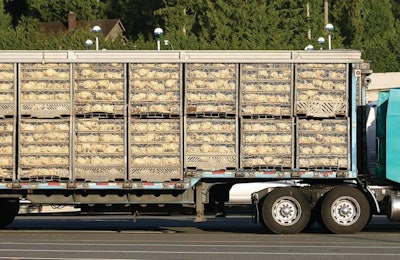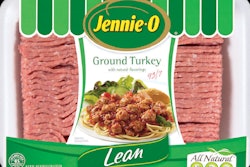
The Brazilian Association of the Meat Exporting Industry (ABIEC) and the Brazilian Association of Animal Protein (ABPA), which represent more than 170 companies and cooperatives of the production and export chain of animal protein in Brazil, reported that the truckers' strike directly impacts the meat production sector in the whole country.
90 percent of the plants not working
Antonio Jorge Camardelli, president of ABIEC, and Ricardo Santin, executive director of ABPA, said that, at least until May 23, there were almost 130 production units of member companies of beef, pork and poultry that have halted operations. In addition, they foresee that by May 25, more than 90 percent of animal protein production will stop if the situation is not normalized. Therefore, there will be more than 208 plants of various sizes that will halt operations in Brazil.
25,000 metric tons not exported
Blockages to roads also prevent access of inputs necessary for production and make it impossible for food to flow. Thus, some 25,000 metric tons of chicken and pork meat have not been exported, which is equivalent to US$60 million in income that does not enter the country.
In the case of beef, there are about 1,200 containers that have not been shipped on a daily basis.
Additionally, 85,000 employees of companies and coops of various sizes have halted working in plants. In the same way, the various suppliers of inputs have also been impacted.
Risk of shortage
Small plants and small cities or metropolitan regions – which maintain a product delivery cycle of every two days – are already at risk of supply. It is expected that in the coming days this will impact the large urban centers.
In addition to having a real risk of shortages with the strike, it should not be forgotten that the animal protein sector employs more than 7 million people and represents the production of more than 25 million metric tons of food per year.
Release of live animal loads
The Brazilian Association of Animal Protein (ABPA) warns that, unlike the promise made on May 23 by the leaders of the truckers, there has not yet been release of live animal loads at several points where transport is stopped by the strike movement on the roads.
"We have received reports from producers with trucks that transport animals halted in blockages across the country." There are even cases of animals with more than 50 hours without feed.
The circulation of feed trucks to the farms scattered all over the production regions is jammed at several points. "The situation in farms is very serious, due to the lack of inputs and the imminent risk of animal hunger.”
Damages to the production system are serious and will require weeks until the normal rhythm is restored in some plants.
Appealing for a solution
ABIEC and ABPA reiterate that the movement is a right of the group, but reaffirm the importance of maintaining food transportation for the population. The consequences have already been serious and the animal protein sector understands that it is necessary that appropriate measures be taken by the government, so that the situation is solved as soon as possible.
ABPA encourages the movement of truck drivers to fulfill the promise of releasing live animals and feed loads in all blockages, in addition to a minimal amount of food products in plants for the resumption of production.
The protests are fair, but common sense is necessary and to avoid the perpetuation of this situation to the animals.
Brazilian truckers protest against the rise in fuel prices, which have been increased in nearly 50 percent at Brazilian refineries in less than a year.


















